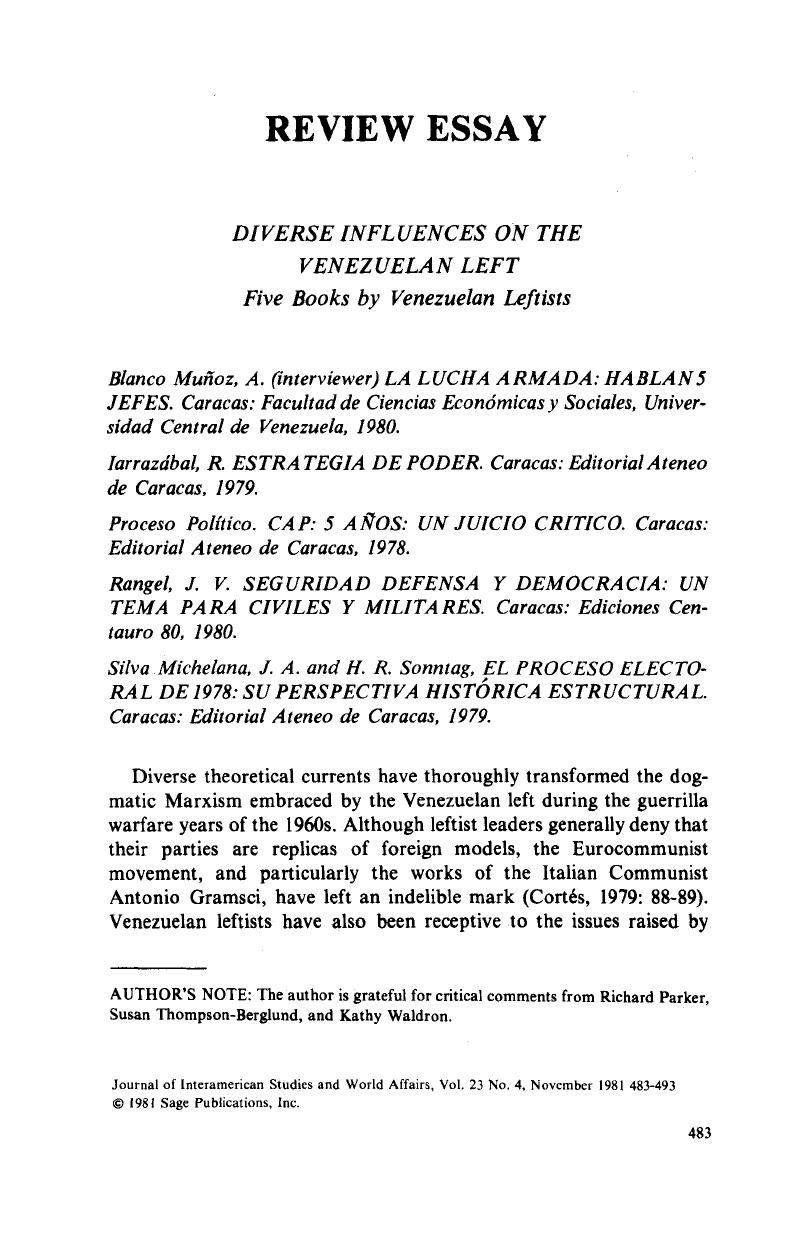Crossref Citations
This article has been cited by the following publications. This list is generated based on data provided by Crossref.
Ellner, Steven
1984.
Inter-party agreement and rivalry in Venezuela: A comparative perspective.
Studies in Comparative International Development,
Vol. 19,
Issue. 4,
p.
38.





